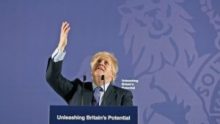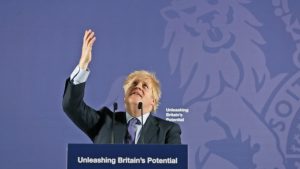How to frame someone good by framing

Framing in public diplomacy


Introduction
Public diplomacy informs and influences international audiences to support and further the policy objectives. It is a foreign policy tool used by the statesmen to advance their national interests in order to achieve their goals. Framing theory deals with the manner in which issues and various events are portrayed and how they are communicated in the text. Framing is a public diplomacy tool. Framing on daily bases helps people understand and interpret the daily events.
According to Hallahan, framing is a useful paradigm for examining the strategic creation of PR messages and audiences’ responses, using psychology, speech communication, economics, media studies, organizational and decision making. [1]Further on, Hallahan also mentions seven types of framing which can be applied to public relations, framing of situations, attributes, choices, issues, actions, news and responsibility. In this essay I will discuss how the concept of framing may be employed in Public diplomacy on the example of how “Brexit” and “Vote Remain” framed the EU and one another. Both sides used framing techniques in their campaigns and so did the press. All the aforementioned framing effects will be discussed in this essay and try to prove that press was more inclined towards Brexit and that campaign “Vote Remain” underestimated dissatisfaction of the common citizens of the UK with the EU policies. Therefore, this essay will prove that framing is a crucial and a very powerful tool in Public diplomacy because it shapes the opinions and actions of people who are not actively involved in politics and do not have the time to research on their own.
The great divide
The economic and migrant crisis have sparked yet another fire among the Eurosceptics, dividing the nation in two flocks. Campaign “Vote Leave” was advocating the UK’s exit from the EU claiming that the country needs to reclaim its borders from the EU, placing a great importance on national pride. “Vote Leave” was created in October 2015 and is a cross-party campaign, including members of Parliament from Conservatives, Labour, and UK Independence Party (UKIP). It is chaired by Labour MP Gisela Stuart, who was also leading the “Vote Leave” Campaign Committee as Co-Convenor with Michael Gove MP.[2]
On the other side, David Cameron called the referendum and he took centre stage in the campaign to remain in the EU. Along with others proponents he was advocating that UK has a better future remaining in the EU because of its culture which is Europe-bound, its trading benefits, job opportunities and the protection of the EU and NATO it enjoys. George Osborne was a pivotal figure in the “Remain” campaign, personifying the government’s view that the UK would be damaged economically by leaving the EU.[3] Key players of the campaign were George Osborne – Chancellor of the Exchequer, Lord Rose – former chair of Marks and Spencer, Will Straw – executive director, Roland Rudd – Treasurer, Lucy Thomas – deputy director, Brendan Barber – former TUC boss.[4]
Framing of issues
According to Hallahan, the concept of framing of issues is a way to examine alternative interpretations of social reality. To “Brexit” or not to “Brexit” was a great divide in the UK that underwent an extensive discussion in the political and public circles. “Vote Leave” campaign addressed the issue of the amount of money which is given to the EU on a weekly basis, £350 million, claiming that it would be better off in National Health Service (NHS). Further on, the issue of migrants portrayed as the amount of people with questionable intentions, taking over job positions and disrupting their health care and school system. The issue of terrorist attacks was used to spark the fire regarding the possible terrorists who come along the immigrants, which altogether presents a national security threat. The problem of legislation was framed negative, claiming that people which the people of the UK did not elect, create laws and regulations that the British people have to implement.
“Vote Remain” campaign focused on emphasizing the positive effects of being a part of EU, such as free market and trade, job opportunities, supported by the fact that the trade with the EU supports 200 000 jobs in the UK and trade with the EU countries supports over 3 million jobs and that leaving EU subsequently means less money for the UK. Further on, leaving EU would mean having less money to spend on the NHS as well. As for the laws and regulations of the EU, they stated that good and useful laws are created for UK as well, giving an example of law that obliges treating equally in the workplace people with disabilities. The possible disadvantage of the “Vote Remain” campaign was failing to address the issue of migrants in a more detailed manner, which did not win over the people who were having fears of terrorist attacks and were unemployed.
Framing of attributes
According to Hallahan, framing of attributes depicts aspects of candidates, causes, community involvement, pictures, promotional messages and other. The “Leave” campaign was framing EU unstable, chaotic, incapable of dealing with migrant crisis and on the way down regarding security, human and legal rights of its members along with the EU court and ineffective. Michael Gove, who co-chaired “Vote Leave”, framed “Brexit” opponents as Nazi campaign against Einstein[5] and Boris Johnson, former mayor of London and the leading proponent of “Brexit”, Prime Minister’s renegotiations deal with the EU not legally binding which the European Court can literally tear it into pieces once the UK agrees to stay, leaving the EC in charge of their borders, immigration and asylum and possibly their intelligence services. The aforementioned was an attempt to frame Prime Minister Gordon as naive and possibly mislead by the EU’s chairpeople, for “Vote Leave” was posting pictures of Gordon alongside Barrack Obama, Angela Merkel and other, underlying his policy a complete failure as his deal with EU would increase £400 million a week by 2020. Also to reaffirm the framing of EU as corrupt and incapable, “Vote Leave” stated in their program the fact that EU has had a similar agreement with Denmark and had broken it. In their program EU was framed greedy, because it was allegedly already planning its next move to take more, publishing its plans for the EU treaty in the “Five Presidents’ Report” which will give them more money and more power, because they are “Eurocrats” and they do not know anything better than that. In their campaign “The Leave” group used a theme song from the movie “The Great Escape” in which allied prisoners escaped from the Nazi prison, based on a true story, possibly alluding to the prevalent dominance of Germany in the EU that UK needs to escape from and gain control of its country again. This time EU was framed as an occupier with selfish intentions.
“Vote Remain” was framing Johnson as unreliable, petty and aggressive with no concrete plan for future outside of EU, by comparing him with Donald Trump, who already has a negative reputation in politics. Using slogans in his promotional speeches “Britain is a leader not a leaver”, “Don’t let the future get down the drain, vote remain”, “Brave the rain, vote remain”, they tried to frame the stay as a rational and natural choice of stable people, young and future oriented people, who are building their careers, dreams and ambitions and Johnson and his vague plan of not knowing what to do the day after, immature, posting a picture of Johnson’s “Vote leave” team sawing the branch of a big tree waiting for a fall on the ground[6], “don’t let them gamble your future” with a photo showing the “Vote leave” team smoking cigars and gambling[7], framing them immoral and irresponsible, considering the UK’s future fun and a game. Both of the groups used ads for their campaign on buses to spread their messages to gain followers, which is also a powerful tool of framing, due to the fact that framing is more efficient when it is repeated.
Framing of risky choices
In framing theory, framing of risks and propositions is influential when key concern is to motivate people to make decisions. Individuals must not merely evaluate attributes but must make a choice between two independent opinions when some level of uncertainty or risk is present.[8] The “Leave” group framed staying in EU as a security threat and a life gamble, because scenes from Paris might be replayed in London as long as they are part of EU. Staying in EU was framed as UK being outvoted on every decision as well as before. Another reason why staying would be a risky choice, was depicted in the campaign with the picture of immigrants crossing under the barb wire to the EU’s territory, bypassing the laws and regulations, mocking them and aiding the terrorists as well, leaving UK no choice on who enters their own country. Therefore exit is a way to create the life they have always wanted and make their country proud. By raising awareness of the social dilemma regarding working positions that UK will have to hand over to the immigrants, they seeded fear among the people for their own well being. Expressing their fear for the public goods, framed in the slogan “our money, our priorities”, they framed negatively actions of the EU and the “Vote Remain” group. The “Vote Remain” campaign emphasized the fact that UK received £66 million daily from EU countries which, if they leave, will be a deficit, rather than a profit as depicted by the opposition. According to the “Remain” group, it was a risky choice leaving the EU, especially because they saw it as a leap in the unknown, not having seen any concrete solutions after the exit by the opposition group.
Framing of actions
Both of the sides used goal-framing of actions where the “Remain” and the “Leave” group used positive action (goal) framing, involving focus attention on obtaining a positive consequence and the negative frame focus attention on avoiding the negative consequence which might result from not taking a particular action. According to Hallahan, such framing has no independent choice at issue and only one course of action is involved. The “Leave” campaign attempted to frame UK as America and it’s fight for freedom, those of America’s fight for freedom, claiming that the day when UK sets free will be the new declaration of independence, alluding to that of America. Clinging to a framed concept that UK will have a self-governing independent democracy and freedom, they wanted to present the voting for exit as the moral obligation of a citizen.
Framing of news
In the framing of news, more precisely press, it appeared as though the press was divided, however more in favour of leave. “The Sun” was for leaving, claiming that the Europe is in a meltdown and that those who remain will be the remain smug. “Daily Mail” was also advocating the leave, for because of EU, UK has lost sovereignty and the laws were created by strangers, such as Obama, Merkel and Lagarde, telling UK what to think, while EU was going through a “demographic upheaval”.[9] “Daily Telegraph”, even though Cameron’s favourite, expressed a dissatisfaction with Brussels. “The Times” voted remain, along with its 62% of readers out of pragmatic reason, the people have not thought the exit through. “Daily Mirror”, voted remain, claiming how only fools would exit and “The Guardian” advocated the same. The topics they framed were migration, economic issues, security threats, independence, lawmaking and budgeting. “The Sunday Times” also vote leave and even the conservative “The Sunday Telegraph” urged the voters to vote leave on its front page.
According to “The Guardians'” pools, an average Brit’s opinion about the bias of media was that the media was “fairly or very inaccurate”[10] and negative.
The feedback on influential individuals in the community backing leave or stay in the media was as follows, Daniel Craig, David Beckham, Bobby George, Bear Grylls, JK Rowling, Kiera Knightley, Idris Elba, Sir Steven Hawking, Helena Bonham Carter, are some of many supporters of stay, while John Cleese, Sir Michael Caine, David Bailey[11], David Icke and many other were to vote the leave. Having in mind the aforementioned group of people on both sides, it is evident that younger people, still very active in their work or the older ones which have achieved sense of fulfilment, were inclined to stay, while older population generally has held a grudge against the EU, dissatisfied with their achieving, feeling nostalgic about the country they had spent most of their life. It is fair to assume that that could have been the case with most of the population in the UK.
Conclusion
The role of framing in Public diplomacy is evident, evidently powerful and non exhaustive. Using framing techniques Public diplomacy can influence the target audience to various extent. People who have critical thinking and are active in researching the daily topics around them may not be subject to framing, however all the others may. Framing is useful and necessary in all niches especially in politics. The campaigns for leave and stay were tight and intense, with unfortunate negative outcomes such as creating a great divide between the people who do not think alike regarding the topic and a devastating tragedy which preceded the voting, the death of Joe Cox MP, who was stabbed and shot and died after a constituency meeting. The reason of MP’s death was preceded by shouting “Britain first!”[12] giving indications that the murder was politically oriented. According to the information in the Guardian, The MP was against “Brexit” and was fighting for human rights and justice, collaborating on the solving of Syrian crisis while Thomas Mair, her executor, was a reader of Neo-Nazi group’s handbook on home-made gun with an interest in white supremacy readings. PM Cameron underestimated the people’s dissatisfaction with the EU policies and the current crisis in Europe have only instigated the Euro scepticism. The “Vote Leave” did not have a difficult time winning over its followers, even though no concrete plan after the exit was given to the public. The “Vote Remain” also did not offer anything new to the people that finally punished them by voting to exit. Throughout that entire process the dissatisfaction of people was encouraged by press and the framing of the EU by “Vote Leave” campaign.
As evident, framing is very powerful and must be used cautiously.
Literature
Chong, D. and Druckman, N. (2007) Framing theory. Annual Review Political Science, volume 10 Illinois
Frame Works Institute, several collaborators.(2002) Framing public issues. FW Institute
Grbeša, M. (2012) Framing of the president: Newspaper coverage of Milan Bandić and Ivo Josipović in the presidential elections in Croatia 2012. Politička misao. vol 49, No. 5
Hallahan, Kirk, (1999) Seven models of framing: Implications for Public Relations. Journal of Public Relations Research. Lawrence Erlbaum Associates. Inc.
Sources
http://www.voteleavetakecontrol.org/campaign
http://d3n8a8pro7vhmx.cloudfront.net/themes/55fd82d8ebad646cec000001/attachments/original/1463496002/Why_Vote_Leave.pdf?1463496002
http://www.telegraph.co.uk/news/2016/06/22/eu-referendum-which-celebrities-are-backing-remain-and-who-are-s/
http://www.politico.eu/blogs/spence-on-media/2016/05/where-the-british-press-stands-on-brexit-2016-june-newspaper-best-bet/
http://www.mirror.co.uk/3am/celebrity-news/eu-referendum-celebrities-want-remai-8243309
https://www.theguardian.com/uk-news/2016/jun/16/labour-mp-jo-cox-shot-in-west-yorkshire
https://www.theguardian.com/news/datablog/2016/feb/08/uk-press-rightwing-european-poll-yougov(18/7/2016)
http://www.timesofisrael.com/uk-minister-compares-brexit-opponents-to-nazi-campaign-against-einstein/(18/7/2016)
http://www.bbc.com/news/uk-politics-34505076 (18/7/2016)
[1] Hallahan, Kirk, Seven models of framing: Implications for Public Relations, Journal of Public Relations Research, 1999, Lawrence Erlbaum Associates, Inc.,
[2] https://en.wikipedia.org/wiki/Vote_Leave (18/7/2016)
[3] http://www.bbc.com/news/uk-politics-34505076 (18/7/2016)
[4] http://www.bbc.com/news/uk-politics-34505076 (18/7/2016)
[5] http://www.timesofisrael.com/uk-minister-compares-brexit-opponents-to-nazi-campaign-against-einstein/(18/7/2016)
[6] https://d3n8a8pro7vhmx.cloudfront.net/in/pages/688/attachments/original/1465891996/Tree_48_sheet_7200px_X_3600px.300dpi.jpg?1465891996(18/7/2016)
[7] https://d3n8a8pro7vhmx.cloudfront.net/in/pages/688/attachments/original/1465892069/Gamble_with_your_future.jpg?1465892069(18/7/2016)
[8] Hallahan, Kirk, Seven models of framing: Implications for Public Relations, Journal of Public Relations Research, 1999, Lawrence Erlbaum Associates, Inc.,(p 214)
[9] http://www.politico.eu/blogs/spence-on-media/2016/05/where-the-british-press-stands-on-brexit-2016-june-newspaper-best-bet/(18/7/2016)
[10] https://www.theguardian.com/news/datablog/2016/feb/08/uk-press-rightwing-european-poll-yougov(18/7/2016)
[11] who even borrowed his face to the leave poster (op.a.)
[12] https://www.theguardian.com/uk-news/2016/jun/16/labour-mp-jo-cox-shot-in-west-yorkshire(18/7/2016)